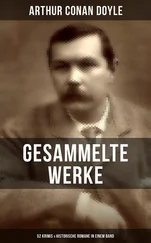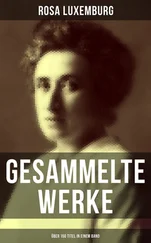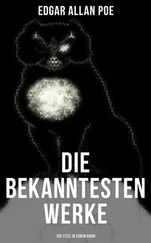Being held a foe, he may not have access
To breathe such vows as lovers us’d to swear;
And she as much in love, her means much less
To meet her new beloved anywhere:
But passion lends them power, time means, to meet,
Tempering extremities with extreme sweet.
[Exit.]
German
Table of Contents
Table of Contents
An open place adjoining Capulet’s Garden.
[Enter Romeo.]
ROMEO.
Can I go forward when my heart is here?
Turn back, dull earth, and find thy centre out.
[He climbs the wall and leaps down within it.]
[Enter Benvolio and Mercutio.]
BENVOLIO.
Romeo! my cousin Romeo!
MERCUTIO.
He is wise;
And, on my life, hath stol’n him home to bed.
BENVOLIO.
He ran this way, and leap’d this orchard wall:
Call, good MERCUTIO.
MERCUTIO.
Nay, I’ll conjure too.—
Romeo! humours! madman! passion! lover!
Appear thou in the likeness of a sigh:
Speak but one rhyme, and I am satisfied;
Cry but ‘Ah me!’ pronounce but Love and dove;
Speak to my gossip Venus one fair word,
One nickname for her purblind son and heir,
Young auburn Cupid, he that shot so trim
When King Cophetua lov’d the beggar-maid!—
He heareth not, he stirreth not, he moveth not;
The ape is dead, and I must conjure him.—
I conjure thee by Rosaline’s bright eyes,
By her high forehead and her scarlet lip,
By her fine foot, straight leg, and quivering thigh,
And the demesnes that there adjacent lie,
That in thy likeness thou appear to us!
BENVOLIO.
An if he hear thee, thou wilt anger him.
MERCUTIO.
This cannot anger him: ‘twould anger him
To raise a spirit in his mistress’ circle,
Of some strange nature, letting it there stand
Till she had laid it, and conjur’d it down;
That were some spite: my invocation
Is fair and honest, and, in his mistress’ name,
I conjure only but to raise up him.
BENVOLIO.
Come, he hath hid himself among these trees,
To be consorted with the humorous night:
Blind is his love, and best befits the dark.
MERCUTIO.
If love be blind, love cannot hit the mark.
Now will he sit under a medlar tree,
And wish his mistress were that kind of fruit
As maids call medlars when they laugh alone.—
Romeo, good night.—I’ll to my truckle-bed;
This field-bed is too cold for me to sleep:
Come, shall we go?
BENVOLIO.
Go then; for ‘tis in vain
To seek him here that means not to be found.
[Exeunt.]
German
Table of Contents
Capulet’s Garden.
[Enter Romeo.]
ROMEO.
He jests at scars that never felt a wound.—
[Juliet appears above at a window.]
But soft! what light through yonder window breaks?
It is the east, and Juliet is the sun!—
Arise, fair sun, and kill the envious moon,
Who is already sick and pale with grief,
That thou her maid art far more fair than she:
Be not her maid, since she is envious;
Her vestal livery is but sick and green,
And none but fools do wear it; cast it off.—
It is my lady; O, it is my love!
O, that she knew she were!—
She speaks, yet she says nothing: what of that?
Her eye discourses, I will answer it.—
I am too bold, ‘tis not to me she speaks:
Two of the fairest stars in all the heaven,
Having some business, do entreat her eyes
To twinkle in their spheres till they return.
What if her eyes were there, they in her head?
The brightness of her cheek would shame those stars,
As daylight doth a lamp; her eyes in heaven
Would through the airy region stream so bright
That birds would sing and think it were not night.—
See how she leans her cheek upon her hand!
O that I were a glove upon that hand,
That I might touch that cheek!
JULIET.
Ah me!
ROMEO.
She speaks:—
O, speak again, bright angel! for thou art
As glorious to this night, being o’er my head,
As is a winged messenger of heaven
Unto the white-upturned wondering eyes
Of mortals that fall back to gaze on him
When he bestrides the lazy-pacing clouds
And sails upon the bosom of the air.
JULIET.
O Romeo, Romeo! wherefore art thou Romeo?
Deny thy father and refuse thy name;
Or, if thou wilt not, be but sworn my love,
And I’ll no longer be a Capulet.
ROMEO.
[Aside.] Shall I hear more, or shall I speak at this?
JULIET.
‘Tis but thy name that is my enemy;—
Thou art thyself, though not a Montague.
What’s Montague? It is nor hand, nor foot,
Nor arm, nor face, nor any other part
Belonging to a man. O, be some other name!
What’s in a name? that which we call a rose
By any other name would smell as sweet;
So Romeo would, were he not Romeo call’d,
Retain that dear perfection which he owes
Without that title:—Romeo, doff thy name;
And for that name, which is no part of thee,
Take all myself.
ROMEO.
I take thee at thy word:
Call me but love, and I’ll be new baptiz’d;
Henceforth I never will be Romeo.
JULIET.
What man art thou that, thus bescreen’d in night,
So stumblest on my counsel?
ROMEO.
By a name
I know not how to tell thee who I am:
My name, dear saint, is hateful to myself,
Because it is an enemy to thee.
Had I it written, I would tear the word.
JULIET.
My ears have yet not drunk a hundred words
Of that tongue’s utterance, yet I know the sound;
Art thou not Romeo, and a Montague?
ROMEO.
Neither, fair saint, if either thee dislike.
JULIET.
How cam’st thou hither, tell me, and wherefore?
The orchard walls are high and hard to climb;
And the place death, considering who thou art,
If any of my kinsmen find thee here.
ROMEO.
With love’s light wings did I o’erperch these walls;
For stony limits cannot hold love out:
And what love can do, that dares love attempt;
Therefore thy kinsmen are no let to me.
JULIET.
If they do see thee, they will murder thee.
ROMEO.
Alack, there lies more peril in thine eye
Than twenty of their swords: look thou but sweet,
And I am proof against their enmity.
JULIET.
I would not for the world they saw thee here.
ROMEO.
I have night’s cloak to hide me from their sight;
And, but thou love me, let them find me here.
My life were better ended by their hate
Than death prorogued, wanting of thy love.
JULIET.
By whose direction found’st thou out this place?
ROMEO.
By love, that first did prompt me to enquire;
He lent me counsel, and I lent him eyes.
I am no pilot; yet, wert thou as far
As that vast shore wash’d with the furthest sea,
I would adventure for such merchandise.
JULIET.
Thou knowest the mask of night is on my face;
Else would a maiden blush bepaint my cheek
For that which thou hast heard me speak tonight.
Fain would I dwell on form,fain, fain deny
What I have spoke; but farewell compliment!
Dost thou love me, I know thou wilt say Ay;
And I will take thy word: yet, if thou swear’st,
Thou mayst prove false; at lovers’ perjuries,
They say Jove laughs. O gentle Romeo,
If thou dost love, pronounce it faithfully:
Or if thou thinkest I am too quickly won,
Читать дальше












